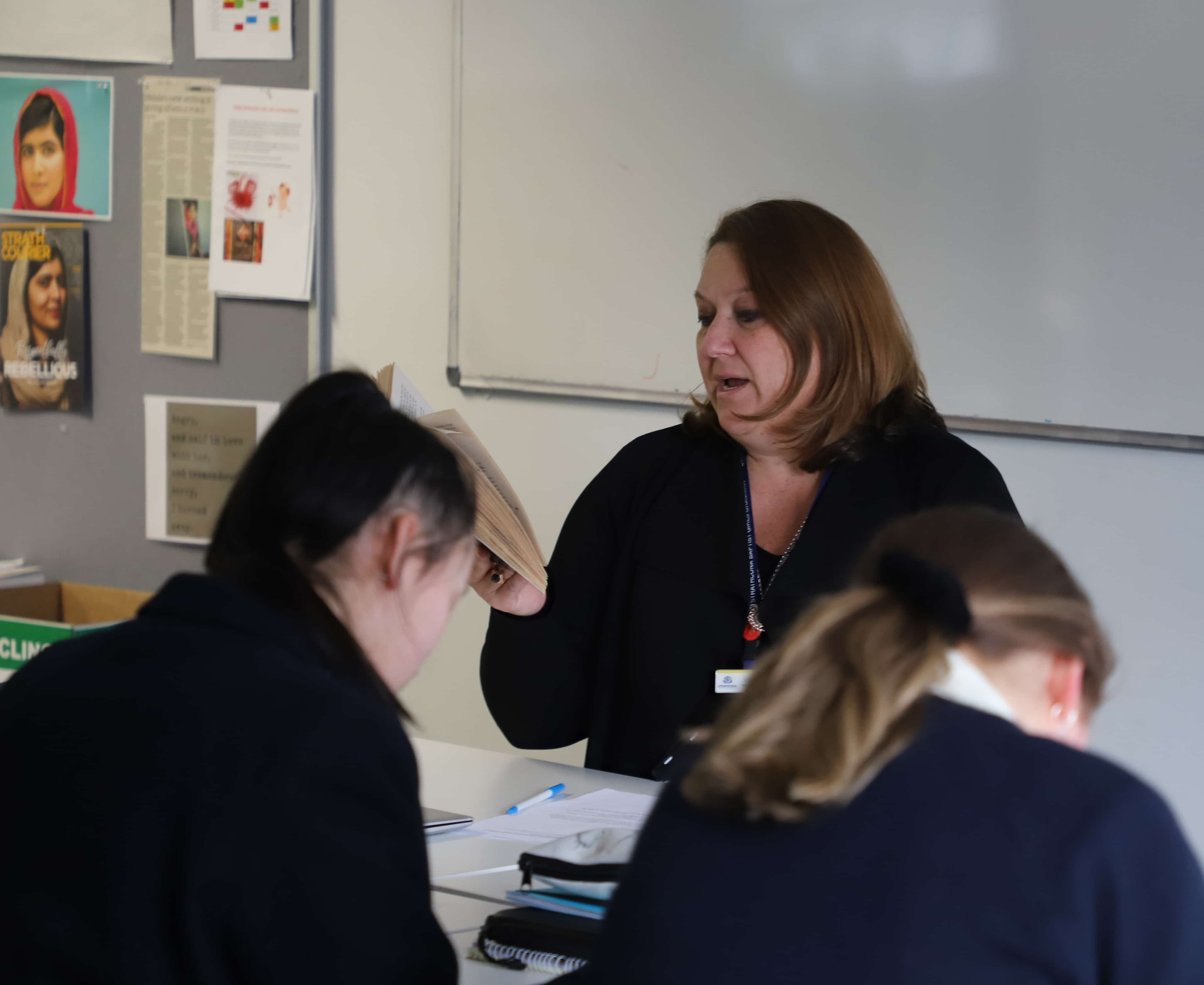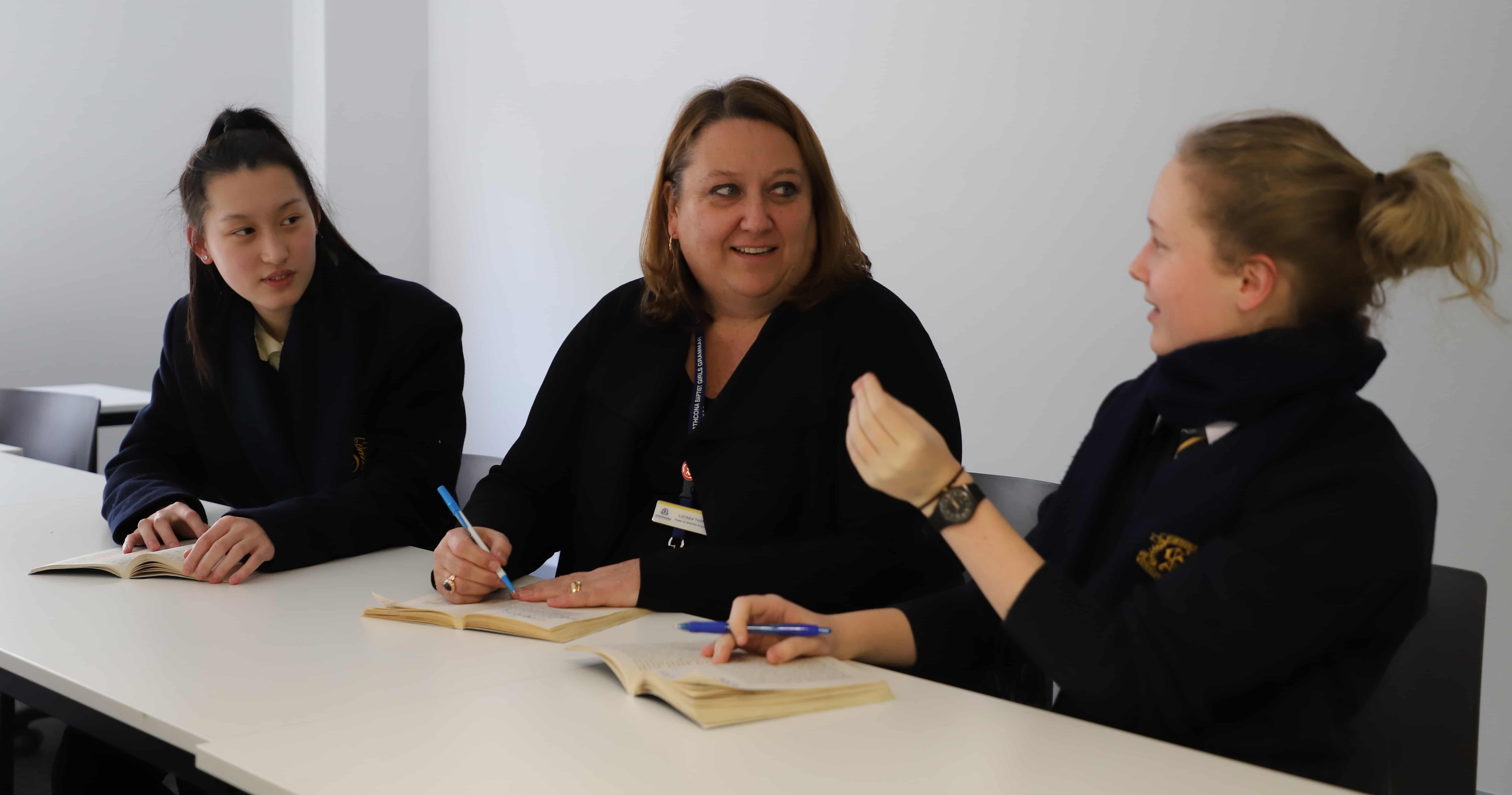A passion for literacy and a commitment to youth wellbeing might best describe Mrs Lucinda Thom our Head of Grenfell. Having been in pastoral care positions for 14 years, Lucinda has a deep understanding on how to empower our students in an increasingly complex world.
Strathcona is a finalist in the Australian Educator Awards for Best Wellbeing Program and Lucinda was instrumental in researching and implementing the current Wellbeing program that is centred on the School’s House system.
What do you enjoy most about teaching?
Without question, I thoroughly enjoy being in the company of teenagers. Just sharing classrooms with them. I find them entertaining, kind, honest, hilarious and insightful. I love the fact that I can have relationships with so many young people that span their (sometimes turbulent, sometimes joyous) years of adolescence, and when they graduate: I miss them.
What’s different about teaching at Strathcona?
Teachers have always commented that ‘we are so lucky to have the girls we do here at Strathy’. I have often pondered what this really means. I think that the School itself, and all the humans that weave the organic fabric of Strathcona, imbue a sense of comradery and community that is tangible. There is little sense of separation between staff and students – and a clear idea that we are all on a journey together. They know we care about them, and students invariably respond positively and with respect and kindness to us. There is a powerful sense of identity as a ‘Strathy girl’ that endures throughout different cohorts of students and transcends the years.
How long have you been in your role at Strathcona?
I have been Head of House this year with the new vertical system (go Grenfell!), but I have been involved in pastoral care management for 14 years at Strathcona.
What inspired you to become a teacher?
Like many educators, I had a couple of key teachers at high school that forged deep impressions on me. I admired their intelligence, compassion, but most of all, their dedication to a vocation where the value of what they did appeared to be measured not in dollars, but in how much they could assist us irascible teens navigate the (often) arduous journey of adolescence so selflessly. I so admired them. I also remember how one, in particular, was able to awaken a sense of joy in learning as she transported me to the Dickensian world of coal, corsets and workhouses one term, and then most memorably, introduced me to my first love: Shakespearean England with its castles, fairy forests and vivid imagery. She showed me a world of literature which could articulate what I thought inexplicable. And thus began a lifetime of wanting to share this world of history and literature with others.

What inspires you now in teaching?
It remains the same: the utter satisfaction in knowing that what I do everyday has a clear intrinsic and extrinsic value. As teachers, we have the luxury of never having to question if what we do has meaning. It can be exhausting, heartbreaking and demanding, but we always know that it is joyful, meaningful and has purpose, well beyond us as individuals.
Do you have a highlight/memorable moment from your time at Strathcona?
Perhaps my most potent Strathcona memory is of my first Rose Assembly. I went in to my seat blithely unaware of how evocative it would be. The Year 12s, whom I had known since Year 7, were about to transition from schoolgirls and leave Featherston Hall as graduated young women. I was holding myself together reasonably well during the symbolic gifting of the rose across the stage, but for the Benediction, when the Year 12s turned to face the audience, and from above the choir sang like angels the Irish blessing, my tears fell. I was overcome by this poignant, beautiful symbolism, and like the parents, so glad that the ritual of the Strathcona Rose Assembly incapsulated perfectly this joyous rite of passage for us all. It’s still my favourite event in the school calendar.

What do you enjoy doing outside the classroom?
I am a bit of a nerd; I love reading. I enjoy pottering around at home and spending time with my family. We go out for breakfast way too much, but I also love to cook at home for friends and family. Netflix has also become a special friend.
What advice would you give students?
I might use an old bit of advice about empathy and perspective that my father used to say all the time (that I thought he made up until I read the book) from a novel that I would award my all-time favourite: Harper Lee’s To Kill a Mockingbird: “You never really understand a person until you consider things from his point of view…Until you climb inside of his skin and walk around in it.”


